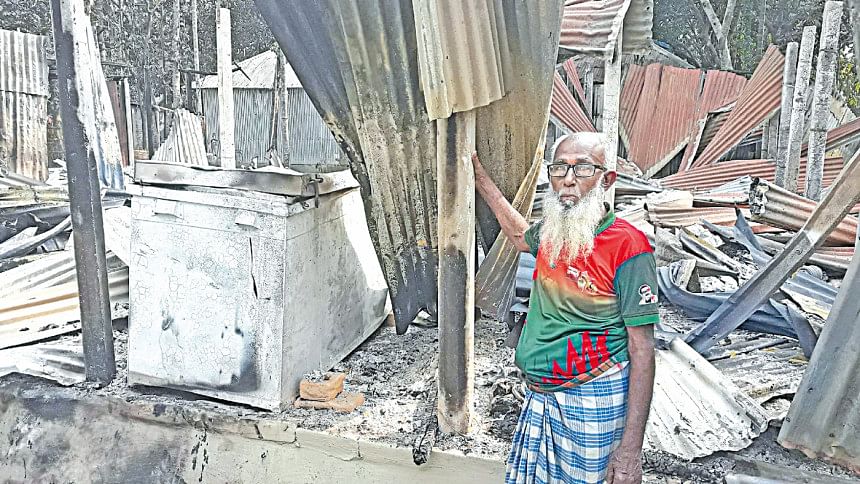Freedom of religion of the Ahmadiyya community

In Bangladesh, the history of infringement of the rights of the Ahmadiyya people goes back a long way. The attack on Ahmadiyya Dhaka headquarters in 1992, the killing of an Ahmadiyya imam in 2003, and the besieging of Ahmadiyya mosques in 2004 are just some of them. Clearly, the intolerance and culture of impunity responsible for the horrible attack of March 3, 2023 on the Ahmadiyyas in Panchagarh, has been the product of the failures of the state for a long time. It is still unclear who the real culprits are, and whether the attack is purely due to religious zealotry or if there is any political aspect involved. But there is no doubt that this issue needs some discussions from a legal point of view.
Firstly, many religious and non-religious leaders have sometimes given many fatwas and speeches regarding the Ahmadiyya community, which have contributed to the dehumanisation of the followers of this belief and incitement to hatred and violence. The Supreme Court of Bangladesh in the case of Tayeeb (Md) and another v Government of the People's Republic of Bangladesh (2015) 67 DLR (AD) held that fatwas generally are not unlawful.
However, if a fatwa given goes against the laws of the country or if it affects the rights or reputation protected by the laws of the country, then the same will be void. Therefore, any fatwa given that dehumanises the Ahmadiyya people or threatens to violate their fundamental rights is unlawful and void. Moreover, speeches by religious clerics at different religious sermons or otherwise, if they are intended to incite violence, constitute a penal offence under section 505 of the Penal Code, 1860. Despite there being many instances of such incitement to violence, the local authority has hardly ever taken against the instigators.
Secondly, the government has on several occasions seized the publication of books belonging to the Ahmadiyya faith under section 99A of the Code of Criminal Procedure, 1898. For instance, in 1985 a book titled Islam-i-Nabuat was seized and later, the order was upheld to be lawful in the Bangladesh Anjuman-e-Ahmedia, represented by its Secretary, Umoor-e-Ama v The Secretary, Ministry of Home Affairs, Government of Bangladesh 45 DLR 185. Moreover, in 2004 a blanket ban was given on all publications of the Ahmadiyya Muslim Jama'at (AMJ). However, this order was later stayed due to interference by the High Court Division in the case of A.K. Rezaul Karim and others v Bangladesh and others (Writ Petition no. 7037 of 2004). It can be argued that the initial decisions of the government to consider such extreme demands by religious bigots only fuels the hatred towards the Ahmadiyya community.
Thirdly, it is important to highlight the recent incident of March 3, where an angry mob attacked the houses and stores run by the people of the community to protest the decision to arrange a three-day long jalsa program. Such attacks violate the freedom of religion enshrined under article 41 of the Constitution of Bangladesh. The Indian case of Commissioner, Hindu Religious Endowments Madras v Shri Lakshmindar Tirtha Swamiyar of Shri Mutt (1954) AIR 282 can shed some light on this topic. It was held in this case that the right to freedom of religion not only protects the beliefs and ideas of religions but also protects the rituals and practices integral to them.
And lastly comes the demand to the government to declare the Ahmadiyya sect as non-Muslims. It begs the important question of whether the state constitutionally can even make such a declaration. Bangladesh, according to her Constitution, is a secular state, and making such declaration would surely go against the very fundamentals of the Constitution and violate article 12, which pledges to achieve secularism by eliminating all forms of discrimination and persecution.
The government must make a careful balance between the right of a certain portion of the religious community of not to get its religious sentiments hurt and the freedom of religion of the Ahmadiyya sect. It is unfortunate that a state which was liberated from the tyranny of Pakistani military rule so that people of all faith can live in harmony has reached a point where communal violence is slowly becoming a norm. The government is obliged to protect all the fundamental rights of people belonging to all religions not just by its Constitution but also according to its international obligations under the ICCPR and others. It is horrific that these culprits, in most cases, are getting away from the hands of the law enforcement force, which in turn is creating a culture of impunity. An independent probe must be formed to investigate the matter and bring the truth behind such attacks to light, and the government must take sufficient actions so that such incidents never occur again.
The Writer is an Intern, Law Desk, The Daily Star.

 For all latest news, follow The Daily Star's Google News channel.
For all latest news, follow The Daily Star's Google News channel. 



Comments